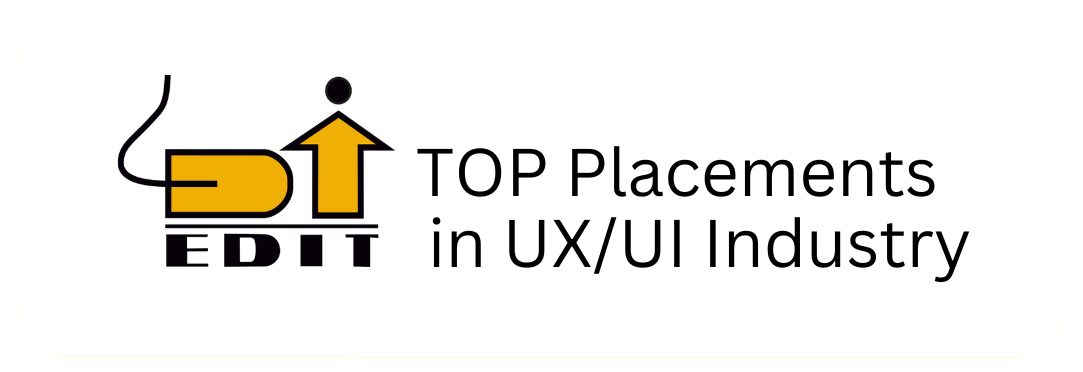UX LENS
News and Tips

Healthcare Application Design
The healthcare industry is undergoing a digital transformation, and at the forefront of this change lies healthcare application design. These apps have the potential to revolutionise how patients manage their health, connect with providers, and access critical information. But for them to succeed, user-centred design is paramount.
Why User-Centred Design Matters in Healthcare Apps?
Imagine a diabetes management app with a confusing interface or a medication reminder app that bombards users with notifications. These are examples of poorly designed healthcare apps that can lead to frustration, missed treatments, and ultimately, negative health outcomes.
User-centred design flips the script. It places the patient at the heart of the design process. By understanding their needs, anxieties, and technical literacy, designers can create healthcare apps that are:
- Easy to Use: A clean and intuitive interface is crucial. Complex features or cluttered layouts can overwhelm users, especially those with limited technical experience.
- Accessible: Catering to diverse needs is essential. Consider features for users with visual impairments, hearing difficulties, or limited dexterity.
- Engaging: Healthcare apps shouldn’t feel like a chore. Incorporate gamification elements or personalised rewards to motivate users and promote consistent engagement.
- Secure and Trustworthy: Data privacy is paramount in healthcare. Ensure robust security measures and clear communication about data collection practices to build user trust.
Examples of User-Centred Design in Healthcare Apps:
Here are some real-world examples of how user-centred design principles are being applied in healthcare apps:
- Appointment Scheduling Apps: Simple interfaces allow users to book appointments, manage cancellations, and receive confirmation reminders – all within a few clicks.
- Mental Health Chatbots: These AI-powered chatbots offer anonymous support and initial screenings for mental health concerns, making it easier for users to seek help.
- Medication Management Apps: Visual medication reminders, pill identification tools, and refill request features can empower users to stay on top of their medication schedules.
The Future of Healthcare App Design:
As technology evolves, so too will healthcare app design. Here are some exciting trends to watch:
- Integration with Wearable Devices:Healthcare apps will seamlessly connect with wearables to collect real-time health data, allowing for personalised health insights and interventions.
- AI-powered Diagnostics and Chatbots: Advanced AI will play a bigger role in symptom analysis, preliminary diagnoses, and offering 24/7 support through chatbots.
- Focus on Preventative Care: Apps will move beyond managing chronic conditions to promoting healthy habits and early disease detection.
Conclusion
Healthcare application design has the power to transform how we approach health and wellness. By prioritising user-centred design principles, we can create apps that are not just functional but empowering, engaging, and ultimately contribute to a healthier future for all.
Placement of the week

SHIVANI SINGH - B.Design (Textile)
The Runaway Crew-Graphic Designer/Ui UX designer
UX UI industry opens up diverse and lucrative opportunities. The theories taught in EDIT will lead you to various companies and the constant support prepares you for interviews. We had proper time for assignments and received feedback from instructors. I’m feeling great about my internship.
Healthcare Application Design
The healthcare industry is undergoing a digital transformation, and at the forefront of this change lies healthcare application design. These apps have the potential to revolutionise how patients manage their health, connect with providers, and access critical information. But for them to succeed, user-centred design is paramount.
Why User-Centred Design Matters in Healthcare Apps?
Imagine a diabetes management app with a confusing interface or a medication reminder app that bombards users with notifications. These are examples of poorly designed healthcare apps that can lead to frustration, missed treatments, and ultimately, negative health outcomes.
User-centred design flips the script. It places the patient at the heart of the design process. By understanding their needs, anxieties, and technical literacy, designers can create healthcare apps that are:
- Easy to Use: A clean and intuitive interface is crucial. Complex features or cluttered layouts can overwhelm users, especially those with limited technical experience.
- Accessible: Catering to diverse needs is essential. Consider features for users with visual impairments, hearing difficulties, or limited dexterity.
- Engaging: Healthcare apps shouldn’t feel like a chore. Incorporate gamification elements or personalised rewards to motivate users and promote consistent engagement.
- Secure and Trustworthy: Data privacy is paramount in healthcare. Ensure robust security measures and clear communication about data collection practices to build user trust.
Examples of User-Centred Design in Healthcare Apps:
Here are some real-world examples of how user-centred design principles are being applied in healthcare apps:
- Appointment Scheduling Apps: Simple interfaces allow users to book appointments, manage cancellations, and receive confirmation reminders – all within a few clicks.
- Mental Health Chatbots: These AI-powered chatbots offer anonymous support and initial screenings for mental health concerns, making it easier for users to seek help.
- Medication Management Apps: Visual medication reminders, pill identification tools, and refill request features can empower users to stay on top of their medication schedules.
The Future of Healthcare App Design:
As technology evolves, so too will healthcare app design. Here are some exciting trends to watch:
- Integration with Wearable Devices:Healthcare apps will seamlessly connect with wearables to collect real-time health data, allowing for personalised health insights and interventions.
- AI-powered Diagnostics and Chatbots: Advanced AI will play a bigger role in symptom analysis, preliminary diagnoses, and offering 24/7 support through chatbots.
- Focus on Preventative Care: Apps will move beyond managing chronic conditions to promoting healthy habits and early disease detection.
Conclusion
Healthcare application design has the power to transform how we approach health and wellness. By prioritising user-centred design principles, we can create apps that are not just functional but empowering, engaging, and ultimately contribute to a healthier future for all.
Placement of the week

SHIVANI SINGH - B.Design (Textile)
The Runaway Crew-Graphic Designer/Ui UX designer
UX UI industry opens up diverse and lucrative opportunities. The theories taught in EDIT will lead you to various companies and the constant support prepares you for interviews. We had proper time for assignments and received feedback from instructors. I’m feeling great about my internship.
